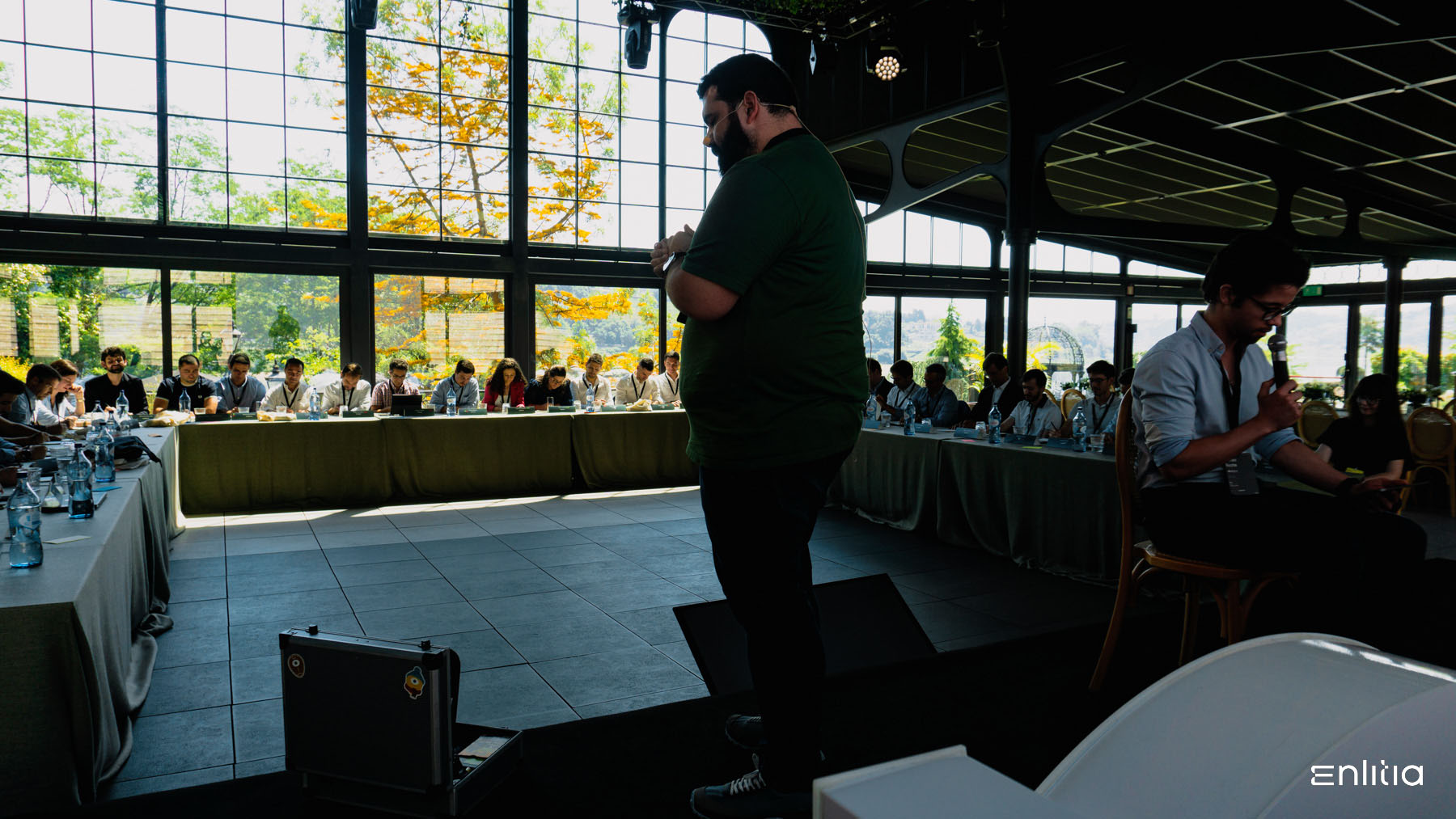At Enlitia, we believe true transformation happens at the intersection of bold ideas, real-world challenges, and the people who dare to solve them. The 4th edition of our flagship event — AI for Energy: Transforming with AI Agents — brought that belief to life.
Held in Porto on 29 May 2025, this year’s edition explored the evolving role of AI Agents in managing energy systems and driving operational intelligence at scale. But more than that, it offered a human-centred view of what transformation looks like when AI becomes a partner in everyday energy decisions.

From the very start, the room felt different. Not because it was packed — it was — but because of the questions buzzing in the air. Not what is AI? but what happens when it becomes part of how we work, decide, optimise?
As our CEO, Tiago Santos, kicked off, he asked the room: “Who here uses LLMs regularly?” The answers revealed a shift. What was once exploratory is now operational. AI is already changing how energy professionals write, plan, optimise — and imagine what's next.
Our opening presentation framed the core theme of the day: AI Agents aren’t replacing people — they’re augmenting decision-making, enabling autonomy, and unlocking coordination across complex energy systems.

From there we moved to the real complexity and hidden potential of hybrid energy systems, with Bernardo Almeida's presentation as a standout to it. With clarity and a touch of irreverence, he explored what makes these systems powerful — and what makes them hard to manage.
From wind and solar integration to energy storage optimisation, Bernardo mapped the challenges that require system thinking — and tried to gather insights on how to build intelligent tools to solve them.

Later in the morning, Luís Simões brought the energy to a creative high point with a session that was as dynamic and reflective as it was fun.
In a more informal and interactive format, Luís challenged us to think critically about what still sets humans apart in an AI-enhanced world. It was a powerful reminder that memory, communication, creativity, humour, and context are still ours to own — and must remain central in any transformation.

After lunch, in a sharp session, João Pereira unpacked what truly defines an AI Agent — not just a model that answers questions, but one that senses, plans, acts, and learns autonomously. He used a striking metaphor to contrast traditional automation with AI Agents, making it clear: agents don’t just follow paths — they adapt to them.
As João reminded us, “Even the best intern needs a manager.” Agents aren’t replacing us — they’re becoming part of how we work smarter, faster, and with greater impact.

Andrei Petreanu ended the day with one of the most anticipated moments of the day. He cut through the AI hype with a compelling deep dive into hybrid AI architectures. He shared how combining generative and predictive blocks with human-controlled logic is key to building intelligent systems that are not only powerful — but trustworthy and adaptable at scale.
With real examples, a live demo, and sharp insights, Andrei showed how flexible agents and rule-based workflows can automate even the most complex processes, without losing transparency or control. AI is not about replacing human input — it’s about structuring it into the system.

The location wasn’t just a backdrop — it was part of the experience.
We hosted the event at the stunning Vinha Boutique Hotel, which provided not only an inspiring setting but also exceptional hospitality.
Between sessions, conversations flowed over fresh food, beautiful views, and an atmosphere that made ideas feel at home. It reminded us that innovation thrives not just in code and charts — but in shared moments and human connection.

Interested in revisiting the content or sharing it with your team?
You can request access to all presentations by submitting the form on your right.
AI for Energy 2025 was not just a meeting of minds — it was a movement toward a smarter, more resilient energy future. AI Agents are here to stay. And as the complexity of energy systems grows, so too must our ability to manage it — with precision, trust, and intelligent systems that serve the people behind the platforms.
We left Porto with clarity, motivation, and more than a few new ideas.